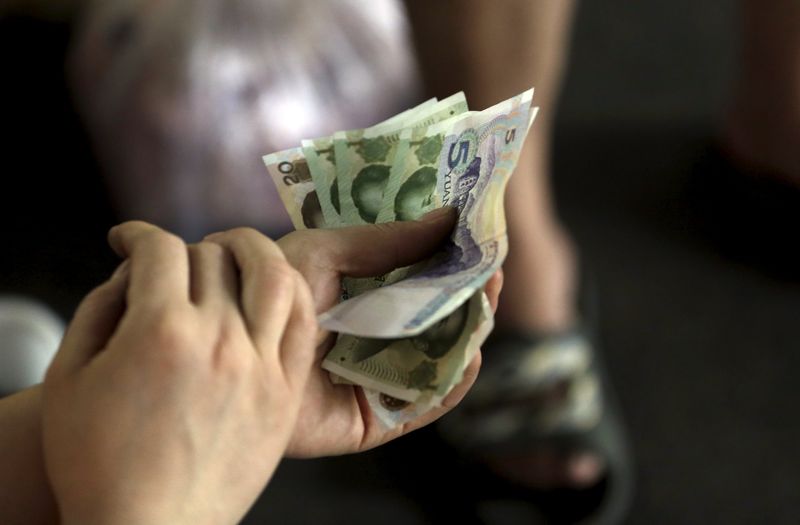* Yen up across the board in choppy trading
* Trumps threatens China with higher, more tariffs
* U.S. and Nikkei stock futures slip, Treasuries well bid
By Wayne Cole
SYDNEY, May 6 (Reuters) - The safe-haven yen climbed in Asia on Monday after U.S. President Donald Trump threatened to increase tariffs on China, sending riskier assets into a spin and slamming stock futures.
Trump on Sunday increased pressure on China to reach a trade deal by announcing he will hike U.S. tariffs on $200 billion worth of Chinese goods this week and target hundreds of billions more soon. announcement via Twitter marked a major shift in tone from Trump, who has cited good progress in trade talks and praised his relationship with Chinese President Xi Jinping.
Chinese officials are scheduled to meet their U.S. counterparts in Washington on Wednesday after meeting in Beijing last week for a round that Treasury Secretary Steven Mnuchin described as "productive."
Investors responded by bidding up the yen which is considered a safe harbour in times of stress given Japan's status as the world's largest creditor and its huge hoard of assets abroad.
The dollar initially fell to a five-week trough at 110.53 on Reuters dealing JPY=D3 , having ended Friday around 111.12. It was last at 110.83, with the market again thin as Japan remains on holiday.
The euro hit its lowest since January at 123.44 yen EURJPY= , before steadying around 124.00. The single currency was steady on the dollar at $1.1192 EUR= , while the dollar index was a fraction softer at 97.502 .DXY .
The dollar did gain on the Chinese yuan, firming 0.75 percent to 6.7830 CNH= .
The Australian dollar took a spill given the country's exposure to Chinese trade and lost around 0.6 percent at one stage to $0.6960 AUD=D3 . It was last holding at $0.6992.
"An increase in tariffs would be bad news for risk assets and would threaten the prospect of a global growth recovery," said Rodrigo Catril, a senior FX strategist at NAB.
"AUD and NZD are lower at the open as we await for Asian markets to open," he added. "An aggressive response from China that halts current negotiations, with higher tariffs by the end of the week would be a disaster for risk assets."
As a taste of what was to come, E-Mini futures for the S&P 500 ESc1 slid 1.4 percent in early trade and Treasury futures TYc1 jumped 14 ticks. Nikkei futures NKc1 were down 2 percent at 22,035, though the cash market will not open until Tuesday.
The U.S. dollar had already softened on Friday when jobs data beat expectations but a soft reading for wages meant the Federal Reserve could afford to stay patient on policy. futures market on Monday moved to price in an even greater chance of a rate cut this year as Trump's tariff warnings was seen as a risk to the global economy and business sentiment.
Futures 0#FF: imply a funds rate around 2.230 percent by December compared to the current effective rate of 2.40 percent.
